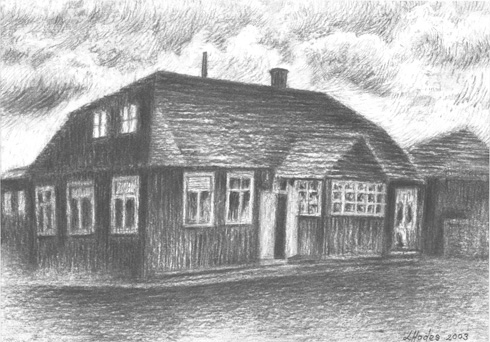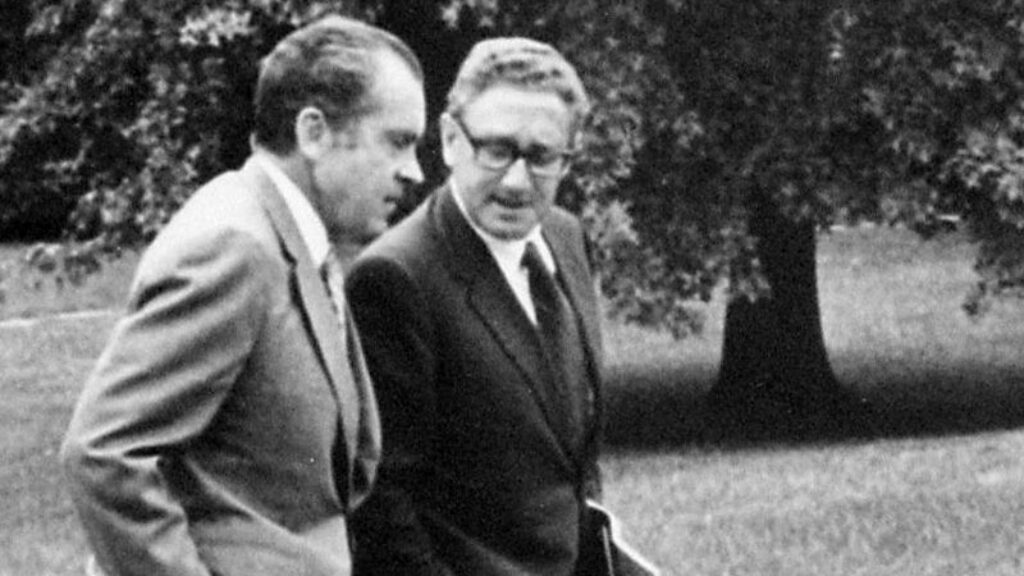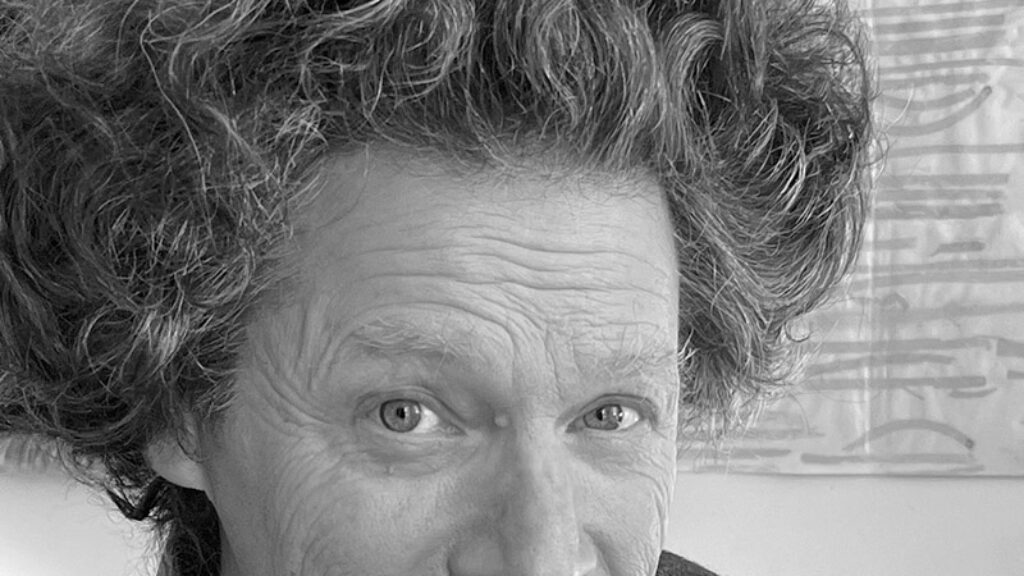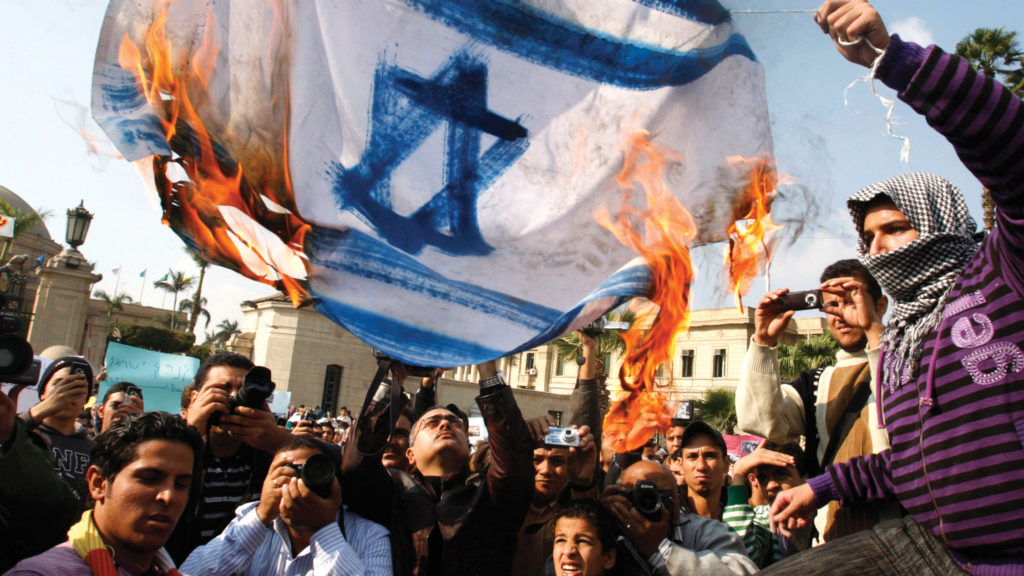Notice Posted on the Door of the Kelm Talmud Torah Before the High Holidays
In the early 1850s, Simcha Zissel (Broida) Ziv (1824-1898) left his hometown of Kelm, Lithuania to meet Rabbi Israel Lipkin Salanter, the controversial rabbi who had recently been hired by the Jewish community in the city of Kovno. Rabbi Salanter had been giving public sermons that called on his fellow Jews to devote time and energy to musar—to the deliberate and methodical improvement of one’s moral character. Salanter urged his listeners to fear for the punishments that would await them if they did not focus on developing virtues of reverence, humility, just

ice, and kindness. Many traditionalists admired Salanter’s fierce opposition to the Jewish Enlightenment movement (Haskalah), but they were disturbed by the prospect of a new sectarian movement that, like Hasidism, seemed to reject the central role of Talmud study and to introduce other models of piety.
As a devoted student of Talmud, Simcha Zissel seems to have initially shared the concerns of these traditionalists. Having also studied some of the modern subjects favored by the Haskalah, including German, he may have also been troubled by Salanter’s fierce opposition to general studies. But he found himself enthralled by Salanter’s spiritual vision and personality. When Salanter resigned from his communal post and established a new private study hall for young men in Kovno, Simcha Zissel followed him.
In the 1860s, Simcha Zissel returned to his hometown and founded a unique yeshiva inspired by Salanter, the Talmud Torah of Kelm. In some respects, the Talmud Torah was fiercely traditionalist, expelling students who challenged Orthodox theology, including Isidor Elyashev, who later became a distinguished literary critic. In other respects, however, it was open to the Haskalah’s legacy. The Talmud Torah was the first traditionalist yeshiva in Eastern Europe to set aside time for general studies, including mathematics, geography, and Russian language, literature, and history. Simcha Zissel also insisted on adopting the manners and dress of European bourgeois culture, encouraged many of his students to consider careers in commerce, and made periodic references in his lectures to figures such as Socrates, Plato, and Aristotle, whom he regarded as great ethical teachers.
Perhaps most radically, Talmud Torah’s curriculum cut yet further into the time traditionally allotted for the study of Talmud by devoting an unprecedented number of hours to the study of moral literature, contemplative visualization exercises, impassioned chanting, meditative prayer, and group discussions on issues of moral development. This was met with political opposition in the Jewish community, and Simcha Zissel was eventually forced out of Kelm. He briefly reestablished the yeshiva in Grobin (in modern-day Latvia), but was forced to close it down after only a few years due to his declining health. He spent the last decade of his life back in Kelm teaching a few close disciples who would eventually spread the Musar movement throughout Europe and beyond. He came to be known as the “the Alter,” or elder, of Kelm. Among the most influential of his students were Rabbis Reuven Dov Dessler, Yerucham Halevi Levovitz of the Mir Yeshiva, and Nosson Tzvi Finkel (who was eventually known as the Alter of Slobodka).
Rabbi Simcha Zissel posted the following notice on the door of the Kelm Talmud Torah in the month of Elul, which immediately precedes the High Holidays. In its specific prescription for ethical self-development through meditation and its careful, rigorous, even philosophical, linking of devotion to God with devotion to one’s fellow man, it is characteristic of the Musar movement. It is translated here by Geoffrey Claussen, who directs the Jewish Studies program at Elon University and is working on a book about Simcha Zissel’s ethical thought.
As is known, the sages taught [that God commanded]: “recite verses of kingship before me . . . so that you make me king over you” (Babylonian Talmud, Rosh Hashanah 34b).
When we meditate upon the power to maintain a kingdom [ruled] by [a king of] flesh and blood, [we find that] the kingdom is maintained only when the king’s subjects are all like one person in their service to him. And if . . . division were to emerge among the subjects of the king, the knot of the kingdom would be untied, and (God forbid) the world would be destroyed. As our sages of blessed memory said, “were it not for the fear [of the government], a person would swallow his neighbor alive” (Mishnah Avot 3:2). Thus the unity of the subjects maintains the kingdom.
Rabbenu Tam of blessed memory wrote in his Sefer Ha-yashar that we can find the way to serve the King of Kings, the Holy Blessed One based on the service given a king of flesh and blood. And so we can understand that the essence of fulfilling [the commandment] “that you make me king over you” is in the unity of the servants of the Blessed One. Thus it is written, “There will be a king in Jeshurun”—when?—“when the heads of the people will be gathered, when the tribes of Israel will be united” (Deut. 33:5).
Therefore there is an obligation upon us, prior to the Day of Judgment (may it come upon us for good), to occupy ourselves during the entire year with the positive commandment “You shall love your fellow as yourself” (Lev. 19:18). And through this there will be unity among the subjects of the Blessed Lord, and [God’s] Kingship will come into our hands well . . .
But if (God forbid) the sin of hating people is on our hands, how can we not be ashamed and disgraced to be speaking lies . . . when we ask [in prayer for God to] “rule over the entire world, in Your glory”? We have not prepared ourselves to do what is essential for maintaining the kingdom of heaven in power over us . . . And so we must accept upon ourselves the work of loving people and of unity. With this, one’s path will slowly, slowly improve—and, in any case, one will already have turned a little bit toward repentance. And, if we merit a community that is immersed in this work during the entire year, who can measure the greatness of the merit for us and for the entire world?
No one should say that this work is too difficult. It is not only the decree of the King, but we hope that when one works at this, with appropriate reflection, it will slowly, slowly, become easier, and one will find great joy in it . . . This message should remain before our eyes all year long. And so may we all merit to be written and sealed for good [in the Book of Life] with the whole people of Israel. Amen—may this be God’s will.
It is good to set aside a place for thinking of this matter every day during prayer. The clear place for it in prayer is in the blessing “True and Firm” [when praising God for redeeming Israel from Egypt, with these words]: “Upon the shore of the sea, they were all together”—this is love and unity. And thus [the liturgy continues] “they all praised God and made God King.” Without such [love and unity], God forbid, there is no full acceptance of the kingdom of heaven. Therefore, it is incumbent upon us to continually make an effort at this, and may we merit to fully accept the kingdom of heaven with the whole people of Israel.
Comments
You must log in to comment Log In
Suggested Reading

Tragedy and Power
Barry Gewen’s new book argues that Henry Kissinger's "hardheaded Realism” was born of his family’s tragic experience in Nazi Germany.

Tangled Truly
Letters of ink. Letters of the heart.

Sundowning
In Morningstar Heights, Joshua Henkin tells his story simply and directly, with a narrative economy that conceals much close observation and human understanding. These have always been the strengths of his work, though they are not the qualities best rewarded in contemporary American fiction.

Israel and the Old-New Middle East
The social and political realities of the Middle East make democracy unlikely. A rough neighborhood may be getting rougher.
neilsharris
Beautiful!
gf
Yes, beautiful, but rooted in and relevant to a Jewish world living in fear of their neighbors---in Europe and in Arab Asia and Africa.
My belief, which grows firmer and more certain over time, is that Rabbinic Judaism is standing in the way of "the next step" in the evolution of the Jewish people. Just as a transition occurred, between the Yam Suf and Har Sinai, whereby the Jews under Moses declared their gratitude and fealty towards the Creator of the World, so a transition occurred in 1948---in the aftermath of the Holocaust and with the advent of the modern Jewish state of Israel.
From 1948 onwards, technically we were no longer "in exile." Thus, our relationship with a faith and a hierarchy born in exile should have been called into question. Instead, a "grand bargain" was made at the time, in order to assure maximum unity of purpose between religious and secular Jews. And, I submit, this grand bargain has bedeviled and stymied the natural evolution of our people---especially when it comes to religious men like me, to shift our focus away from "the rabbis" and onto the God of Israel, as one would think is logical.
When Solomon built the Temple, concomitantly he took the Holy Ark "out of circulation" as a way to consolidate his power over the shevatim. And, he installed a partner-priesthood, perhaps copied from the Egyptians. Henceforth, to be in the Holy Presence, one would have to come to Jerusalem, to make offerings---and to pay taxes! But even then the Holy Presence was closely confined and controlled by the Kohanim, who squirreled the Ark away in a dark corner, somewhere in the stonework of the Temple. Once each year, on Yom Kippur, the Kohen Gadol would "visit" the Holy Presence for reasons that are not known. But we can guess from what we read about how this turned out much later, when the High Priest was in incompetent "political appointee" who arrived drunk as a skunk for the annual "visit" and had to be propped up his fellow Levites to perform his duty.
Compare that with the free-movement of the Ark in David's time, when the Holy of Holies was carried on the shoulders of the Israelites, from one tribe to the other---in order to assure "maximum exposure" of all Israel to their God. Quite a difference, no?
The thing with Rabbinic Judaism, as with its precursor, the Levitic Priesthood, is that it replaced the Holy Presence with Rabbinic Law. In essence, we religious Jews are far more concerned with "observance" than with doing what Rabbi Simcha Zizzel Ziv had in mind. We spend our time "baking the kosher blackbird" endlessly, to the point that it dominates our lives and consciousnesses! What we do not do, almost by intent, is do what our ancestors in David's time did: go into the mountains and make offerings to the Holy One, Blessed Be He.
Think what this means to an average Israeli, whose primary identification with "being Jewish" is the Land itself, his birthplace, the Land he risks his life defending. What must many young (and old) Israeli citizens think, when they are told that "to be a Jew, one must obey rabbinic law!) In other words, "Read Talmud, not Tanakh!"
Last, we all know what is occurring today throughout the Diaspora. Jewish kids barely identify with "being Jewish" in any meaningful way, and many of them are downright hostile towards Israel and Israelis, while expressing "solidarity" with the Arabs. This cannot end well---and it isn't going to. The Diaspora is a fading flower, which had its season, and now is ending its role in our history. In a hundred years, think---what will "being Jewish" mean to Americans whose, say, grandparents identified themselves as Jews? Not much, if anything at all.
We are the remnant of an ancient people who practiced and refined a gorgeous, intellectual, moral mystery religion, and made it their way of life, their core focus. Unlike Islam, which copied our faith in essence, our way is not based on threatening anyone who doesn't agree with us or refuses to join us. Quite the contrary, we'd prefer not to deal with conversions at all, other than when the supplicant makes it impossible to refuse him or her. Ruth "followed" Naomi, not in order to "convert" but because she loved Naomi and wanted to remain part of her family. To me, that is the best reason of all to "become a Jew," but the rabbis will have none of it. And many religious Jews are downright nasty to converts, viewing them as "unclean," trefah!
What I'm suggesting is that we'd better reexamine and reevaluate our history, so we can decide what to do next. Nothing lasts forever, which is the central teaching of Tanakh. Only God is eternal. His creatures, after being expelled from Eden, exist in Time, and are mortal. Therefore, just as Rabbinic began at a point in Time, so it must end at a point in Time! And this is what, in a way, Rabbi Simcha Zissel Ziv---and countless other worthy sages---prefigured with his "Notice Posted on the Door of the Kelm Talmud Torah Before the High Holidays."
Our people are a mighty fortress unto themselves. We are proof-positive of the eternal nature of our Covenant with God, that it endures despite what the world may think of it.
Alone among the world's civilizations, Jews signed a contract with the Creator of the World, that in exchange for living on a slender spit of land along the shores of the Mediterranean, He would be Our God for all Time! The deal, however, presupposed and was based on our willingness to both prosper in that Land (imagine, "prospering" as an obligation!!) and to defend it against all comers. Prosperity and Defense, joined at the hip, as the two pillars of our side of the Covenant.
We Jews are His People, only so long as we fulfill our end of the Covenant. It is my belief that continuing on with a faith grounded in exile contradicts both the letter and the spirit of that Contract.